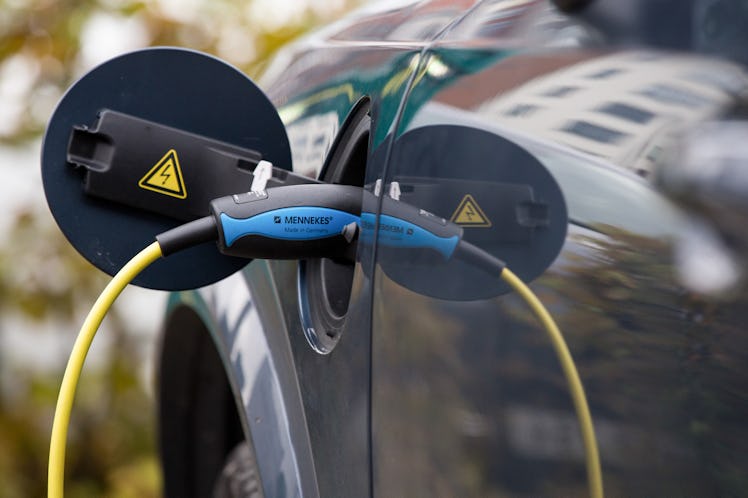It's About To Get Way Cheaper To Buy Your Next EV
Changes to the $7,500 federal EV tax credit might mean that it’s way cheaper to buy your next EV at the lot.

Saving on a new electric vehicle (EV) is about to get easier, thanks to a change that will put the $7,500 federal tax credit into the hands of the car buyer immediately. Starting in January, those purchasing an EV can get that $7,500 tax credit — which is right now applied as savings during tax filing time — up front, instead of getting that money back later.
The new guidance from the Biden administration outlines how dealers — starting January 2024 — can reduce the price of an EV by as much as $7,500 at the point of purchase instead of the customer paying the total price of the EV and then claiming the credit at tax time.
"A dealer can provide a purchasing taxpayer with a financial benefit in cash or the form of a partial payment or down payment for the purchase of the vehicle," the Internal Revenue Service states. "The taxpayer benefits by receiving an immediate financial benefit at the time of sale, rather than having to wait to file a tax return and claim the credit."
The guidance states that most dealers will receive repayment for the $7,500 rebate within 72 hours, and tracking the progress of repayments can be done through an online portal in real-time.
It's important to note that all other requirements for the EV tax credit still apply to both buyers and automakers. This includes automakers hitting two significant requirements: a battery component requirement — which mandates that a certain percentage of the value of the battery components must be manufactured or assembled in North America — and a critical mineral requirement—which requires a certain percentage of the value of the essential minerals that power the EV batteries to be sourced in the United States or a country with an active free-trade agreement.
There's also still an income cap for buyers and a limit to how much the vehicles can cost to qualify for the credit. This means only cars below $55,000 and trucks, vans, and SUVs below $80,000 would be eligible for the tax credit. Additionally, only single buyers who earn less than $150,000, married buyers who make less than $300,000, and head-of-household buyers who earn less than $225,000 would be eligible for the credit.
Whether or not this will help people make the switch is another question altogether. EVs have high sticker prices, no doubt about that — but one report, which was released in August 2023, found that charging your EV is cheaper than refueling with gas in pretty much every way — and significantly, too — as in $700 to $1,000 cheaper a year. State governments have also aimed to make the cost of EVs easier for middle-income drivers — some states are offering additional tax savings, as in Colorado, which is offering an exchange for an old gas vehicle for an EV with a rebate of as much as $5,000 in savings. Other state-wide incentives include Connecticut, which provides income-qualified customers who buy or lease a new or used EV as much as $4,250; Maryland, which offers residents an excise tax credit of up to $3,000 for qualified EVs; and Mississippi, which provides rebates of up to $1,250 for new or leased EVs.